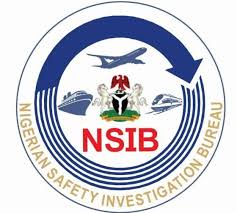The Director-General of the Nigerian Safety Investigation Bureau (NSIB), Capt. Alex Badeh, has raised alarm over the possible negative impact of the newly passed Internally Generated Revenue (IGR) tax law on the agency’s operations.
Badeh spoke during a virtual media briefing with journalists on Thursday, explaining that although the NSIB is still studying the law to understand its full implications, early assessment shows it could hinder the agency’s work. He said the Ministry of Aviation is already in talks with the Federal Government to resolve the matter before the law comes into effect.
“It is a potential problem, but we are being proactive, and the aviation ministry is also very proactive. Let’s see how that plays out before enforcement,” Badeh said.
Despite the looming tax concerns, the NSIB boss highlighted progress made by the bureau in strengthening safety across Nigeria’s transportation system. He pointed out that the implementation of the NSIB Establishment Act 2022 has been a major step forward, capable of reducing accidents and incidents in air, land, and sea transport.
Badeh stressed the need for cooperation among relevant agencies, such as the Nigerian Maritime Administration and Safety Agency (NIMASA), to ensure Nigeria meets international safety standards. He explained that the bureau has already drafted important regulations to guide safety investigations in different transport sectors.
These include the Maritime Safety Investigation Regulations 2025, the Railways (Investigation of Accidents and Incidents) Regulation 2024, and the Civil Aviation (Investigation of Air Accidents and Incidents) Regulations 2025. According to him, these documents are awaiting approval before the NSIB can begin implementation.
Speaking on the agency’s mandate, Badeh clarified that NSIB’s role is to carry out independent investigations into transport accidents without interference. He said this was important to fill gaps in Nigeria’s transport safety system and was in line with international best practices.
“We are recognised by the International Maritime Organisation and we collaborate closely with global partners,” Badeh said.
Addressing reports of overlapping functions with NIMASA, Badeh explained that NSIB’s emergence does not conflict with the maritime agency’s role but instead provides a neutral and independent platform for investigations.
He also revealed plans to bring in new investigators who will specialise in maritime and rail accident investigations. Recruitment is expected to start between September and October, and the bureau will engage professionals, retired experts, and personnel seconded from NIMASA and the National Inland Waterways Authority (NIWA).
Badeh disclosed that some NSIB staff will be sent to the United Kingdom for specialised training. He also confirmed that the agency already has a working agreement with the Nigerian Navy to support maritime investigations.
On relations with other agencies, Badeh expressed optimism that NIMASA will soon fully cooperate with NSIB. He added that the Nigerian Railway Corporation and NIWA are already eager to work with the bureau to improve safety oversight.
Badeh noted that the NSIB’s primary goal is to determine the causes of accidents and incidents, not to assign blame. However, he clarified that the outcome of investigations could still lead to civil, criminal, or administrative action if necessary.
The NSIB DG’s warning over the new IGR tax law underscores the importance of considering the impact of government policies on strategic agencies. Observers say that any disruption to the bureau’s work could slow down critical safety investigations in aviation, maritime, and rail transport, which could in turn affect public safety and confidence.
For now, the aviation ministry’s ongoing engagement with the Federal Government will be key in determining whether the concerns raised by Badeh will be addressed before the law is implemented.
